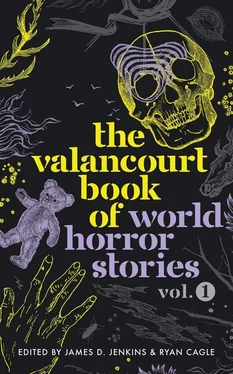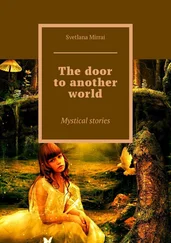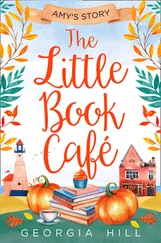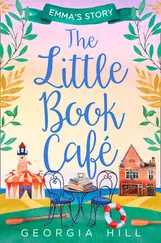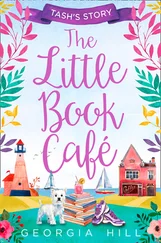The days seem shorter now. We spend them picking and drying herbs, preparing tinctures and poultices, seeing to the people who occasionally drop by. Most of the time, they bring things to barter for our services: rice, fish, chicken, snacks. Sometimes, they visit just because. Anne would meet them when she felt that she was strong enough, but lately, it seems to be more and more just me.
‘You have a knack for this,’ Aling Bebang, the grocer, said once.
‘I’m only here until Anne gets better,’ I reply.
I had been there a month by then.
‘When are you coming home?’ Tim asks, the question more and more frequent now.
‘Soon,’ I say. ‘Soon.’
The birds go crazy only one other time, and that is the night Anne died.
It was just before dinner. We were lying in bed, talking, when Anne seized into the fetal position, clutching her abdomen. She was trying to cough and breathe at the same time, her breaths coming out in short wheezes punctuated by the shaking of her small, frail body. I tried to pull away so I could reach for medicine, but she held me close, with a surprising strength I didn’t know she had.
‘I can’t do this anymore,’ she said.
Outside, the birds began to stir, then began to call, soft chirping giving way to screeches and caws, the shapes of flying raptors turning the night darker, more sinister. Anne began to dry heave, each spasm a wave of pain, each gasp a choke that ended with air and a little saliva, black around the edges.
‘Please,’ she said. ‘Help me.’
I have thought long and hard about this moment. I had been thinking about it even before I left the barrio, even before I let Anne disappear from my life, before I got her letter, before I returned. I was unsure and resentful when I first arrived, but the last month has helped me make peace with what must be done. People say that everybody has a choice, and this is true. But sometimes, the choices are moot, skewed, unfair, irrelevant. I knew that I had a choice not to open that letter. I knew that I had a choice not to return. I knew that I had a choice to leave.
I also knew that, deep in my heart of hearts, I didn’t.
Tim knows this. I made sure to tell him everything, to have his consent before I left. He is a good man, and I am lucky to have him.
I gently lifted Anne so that we were both sitting. She held my face, tracing my jawline with her thumbs, our eyes never leaving each other. She brought her lips to mine. Anne’s kisses are usually sweet, her tongue electric. This time, it felt as if she was devouring me, and I felt a hunger I had never sensed before. Her grip on my face became stronger, but still gentle. She started hacking, dry heaving, but would not let go, her mouth still on mine. I panicked, trying to push myself away, but Anne held on tight. We heard it before we felt it, a soft pop. Something had come up Anne’s throat and was pushed into my mouth. It felt small and slick and wrong. I jerked back on impulse, spit it out. It fell to the floor, making tiny sounds of distress.
Outside, the cacophony continued to rise, more and more birds joining in, the sound confusing and deafening. We heard something thud against the hut, and then another, and another. The birds were dive-bombing the hut again, the normally docile birds attacking us, trying to get inside.
The thing that had come out of Anne’s mouth shifted, its cries almost lost in the sounds from outside. It looked strange in the gaslight, a tiny newborn chick, smaller than usual, midnight black from beak to claw. It was slick with bile and blood and saliva. Anne was slumped in pain beside it, her mouth opening and closing, no words coming out. I looked at the chick. Its eyes were held closed by a thin keloid that made them look as if they were sewn shut with irregular dark thread. It mewled angrily at me, an un-chick sound, surprisingly loud, coming from such a diminutive creature. It was vile and disgusting, but it was also what was keeping my friend from dying.
Like I said, there are many choices I could have made. I could have not answered the letter, or come to see Anne, or stayed for so long, but I did, even though I knew what it would eventually lead to, because I could not bear to see my friend suffer.
I held out a hand. The chick hopped onto it. It was half the size of my palm, and it stank, its feathers slick from Anne’s insides. I shuddered. I could hear the birds trying to get at it from outside. I could feel my belly rumbling, clamoring for this new source of nourishment. The birds stabbed their beaks into the thatched roof and bamboo walls, but the house held. I tried not to let their cries distract me. I closed my eyes and put the chick in my mouth.
It slid down my throat effortlessly, leaving behind a not unpleasant aftertaste much like cotton candy. I felt it move inside me, through me, weaving through passageways impossible to define by conventional anatomy, until it settled in the pit of my stomach, a calm, quiet presence. Anne took my hand, weakly.
‘Thank you,’ she said.
I moved towards her and held her, listening as her breathing became softer and more shallow, until her breath disappeared altogether.
When I leave for the barrio the next day, the birds are gone, and – I realize with a start – I am not hungry anymore.
José María Latorre
SNAPSHOTS
We opened this book on a high note and wanted to end it with a bang as well. So, last but certainly not least ( indeed, it was the first story we selected for the book ) , we’re pleased to offer this delightfully macabre tale by José María Latorre (1945-2014) , a prolific writer of fiction and nonfiction best known in his native Spain for his film criticism, but who also published a number of fine horror tales. This story was previously selected for a 2011 anthology of the best contemporary horror stories from Spain and has also been published in Polish and Italian, but makes its first English appearance here.
The flash from the photo mechanism hidden in the bowels of the machine dazzled him more than usual when it shot its four successive lightning flashes in his face. Then he seemed to vaguely remember that one of the times he had squinted or frowned, but that didn’t justify the fact that the four photos proffered to him on a still-wet strip of cheap cardstock, literally vomited from one of the machine’s openings, showed the face of a different man: he did not recognize himself either in the facial features, or the gray hair, or the terrified expression of the person in the photos. Nor did it explain the unpleasant sensation, a mixture of disgust, anxiety, and fear, that he had experienced when he sat down on the stool and rotated it to adjust his tall stature to the height of the black arrow that had been marked beside the instructions for how to use the machine. Nor the strange, revolting odor that had assailed him when he entered the booth and had unsettled him just like, he thought, one is unsettled by the smell of a room opened after its having been closed up for several years, and the peculiar odor of cemeteries in summer. It smelled the way he figured old mausoleums and crypts must smell. An absurd, inexplicable smell since the interior of that instant photo booth was continuously ventilated, for it was insulated only by a small black cloth curtain and because it was not summer, but winter. He almost smiled at thinking that he wasn’t in a cemetery either, or a crypt, or a mausoleum. But it smelled musty, a smell of accumulated dust and decomposing organic matter. And the four photographs the machine had given him after a sort of growling sound were not his. The only possible explanation was that they belonged to the previous user, since in those automatic machines the photos were delayed a certain time in coming out, sometimes several minutes even: it had happened to him once years ago; a defect in the machine, they told him. Maybe the previous user, the owner of that aged, frightened face, had gone off, tired of waiting for photographs he wasn’t receiving and thinking that he would have to contact the name and telephone number indicated on a small metal plaque and demand a refund. There are machines that are faulty and others that are out of order, thought Elias, and this was one of them, which could mean that his photos would not come out or, in the best case scenario, would be delayed several more minutes in emerging. He would wait; he was in no hurry. For a few moments, the situation struck him as funny, thinking about the possibility that because of some defect or malfunction the machine was daily bestowing on some customers the photographs of others.
Читать дальше
